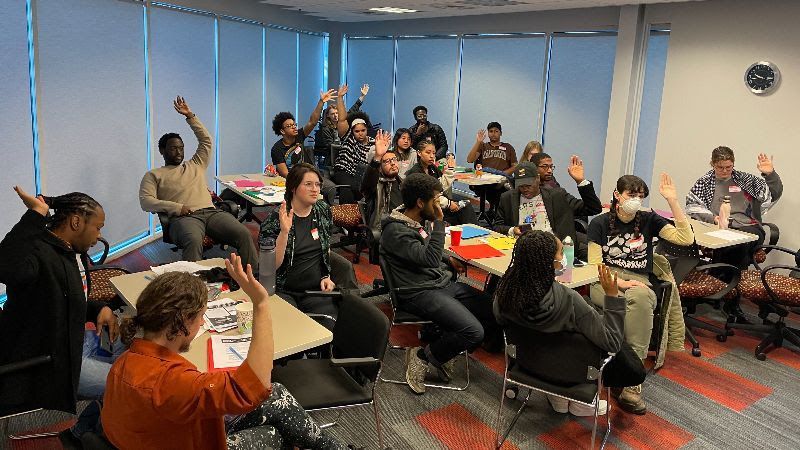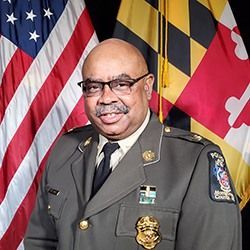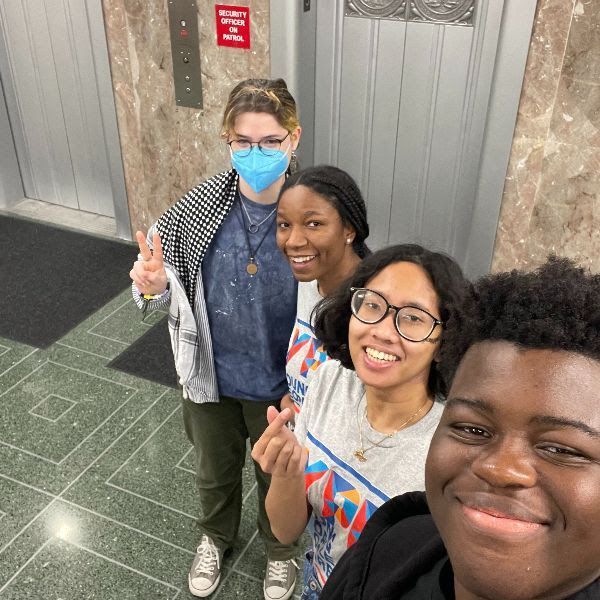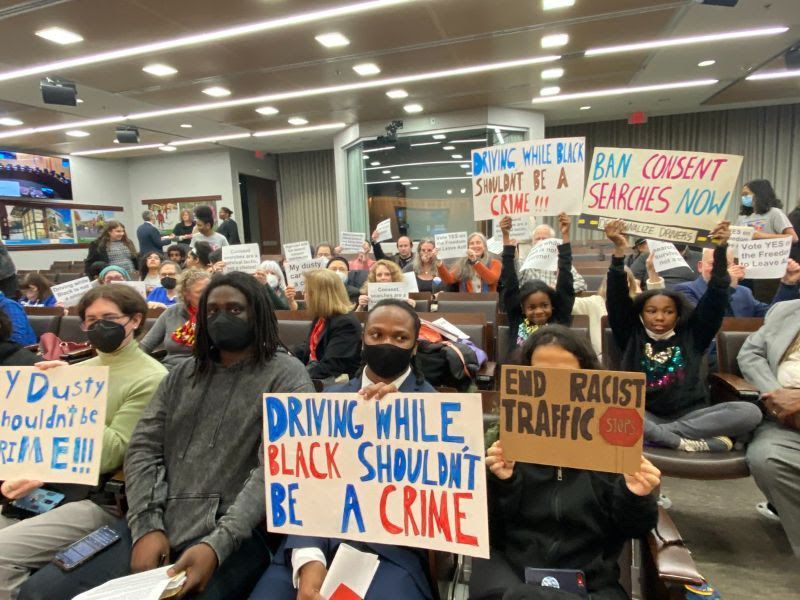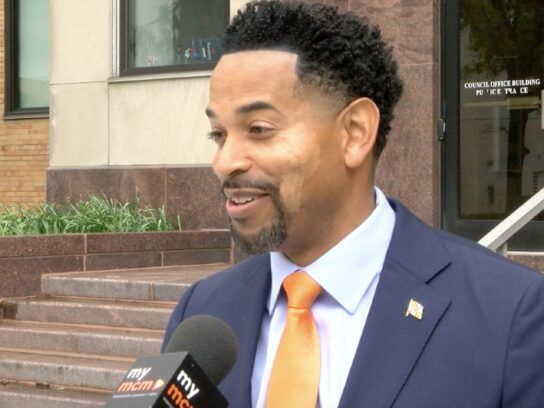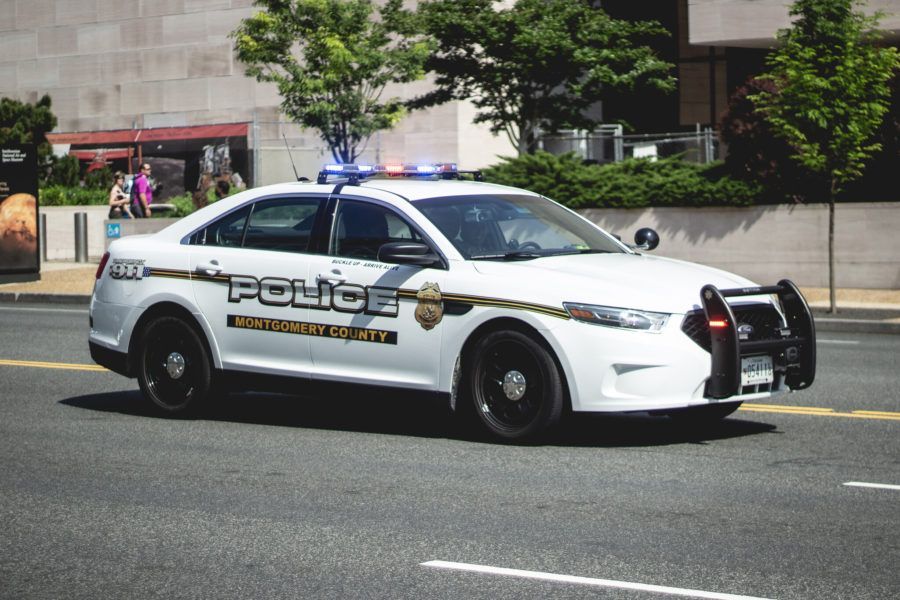Blog Layout
February 6, 2024
Decriminalize Montgomery County Campaign's Statement in Support of the Freedom to Leave Act
Young People for Progress joins Silver Spring Justice Coalition and Jews United for Justice in the Decriminalize Montgomery County Campaign to oppose the appointment of Marcus Jones to Montgomery County Public School’s (MCPS) Chief of Security and Compliance. Marcus Jones’ former role as the Chief of the Montgomery County Police Department and 38 years in law enforcement makes him unsuitable for working with students.
In 2021, the Decriminalize Montgomery County Campaign worked with County officials to end MCPS’ School Resource Officer (SRO) program, following the nationwide call for racial justice in 2020. The County correctly recognized that policing is not the answer to school safety. In fact, studies show that school police worsen the likelihood of a school shooting and the school-to-prison pipeline, particularly for Black students. MCPS students reported feeling increased anxiety and fear when an officer was on campus. School police also do not address the root causes of violence.
Despite the research and after just a year of police-free schools, then-Chief Jones worked with MCPS to bring back school police under the Community Engagement Officer (CEO) program. This decision is harmful because an officer’s unique role is to connect students to the criminal justice system. MCPS can instead draw on professional staff that have trained for years, such as counselors, social workers, and restorative justice coaches, to work with students’ concerns. In contrast, CEOs are only required to undergo at least 40 hours of training to work with students. As community members and directly impacted students, we are deeply concerned that Chief Jones will expand the role of police officers in MCPS.

October 8, 2022
Effective Law Enforcement for All (ELEFA) conducted an audit on the Montgomery County Police Department (MCPD). Silver Spring Justice Coalition (SSJC) recently submitted a letter in response to the audit. Young People for Progress fully endorses the improvements proposed by SSJC. In our own letter , we highlight two important issues regarding young people and police. Traffic stops do not need to be a police function. Traffic stops are the most common way civilians interact with police, especially for Black drivers. Traffic enforcement could be handled by a civilian agency, such as the Department of Transportation. Police should not be in schools. There is no security rationale for police in schools and they are detrimental to a student’s well-being, especially for Black and Latino students. Funding for the CEO program should be reallocated to the other reforms mentioned in the report. You can read the full letter below. October 3, 2022 David L. Douglass Ashley Brown Burns Effective Law Enforcement for All Re: ELEFA’s audit of Montgomery County Police Department (MCPD) Dear Mr. Douglass and Dr. Burns, On behalf of the youth and young adult members throughout Montgomery County who make up Young People for Progress, I write to share our observations on ELEFA’s draft final report evaluating MCPD. Young People for Progress fully endorses the improvements proposed by the Silver Spring Justice Coalition in its recent letter and we trust you will consider them carefully; adopting these recommendations will strengthen the report so that it can be a more useful tool for advancing public safety in the county. In the present letter, I wish to highlight two issues that are of particular importance to young people in the county: removing police from schools and from traffic enforcement. After considering the points below, we hope you will revise the draft to recommend that police not be involved in either of t hese matters. Police should not be in schools If the county aspires to be a place where everyone feels safe, then armed police officers cannot be a fixture in our schools. Police officers’ effect on many students is to make them feel less safe, not more so, and this is true whether they are called School Resource Officers, Community Engagement Officers, or any other title. These students’ anxiety is grounded in the reality of racially disparate treatment by police, and this reality is not negated by the friendly demeanor of an individual CEO. Schools should be protective environments where all students feel at ease and can focus on learning; hosting police works against that goal. Not only is the CEO program detrimental to many students' emotional well-being, but there is also no security rationale for it. CEOs serve no beneficial law enforcement function that cannot be performed equally well (or better) by having police respond when needed. The current memorandum of understanding between MCPS and MCPD recognizes that officers should take the lead only in a narrow, enumerated set of critical incidents; fortunately, these situations are very rare in MCPS, so there is no need for police to maintain offices in schools. in practice, regardless of any policy, officers’ regular presence in schools leads to police being involved in issues best h andled by educators, thus unnecessarily criminalizing Black and brown kids (and high schoolers are indeed kids) with lifelong repercussions. While it is encouraging, as noted in SSJC’s letter, that Mr. Douglass recognizes the current CEO 2.0 program as a disappointment, that assessment should be stated in ELEFA’s report. Furthermore, given the harms that this program causes, we hope you will advise MCPD to discontinue the CEO program and reallocate those resources towards implementation of the other reforms recommended in your report. Traffic stops do not need to be a police function Reducing people’s involuntary interactions with police is a reliable way to reduce the risk of problematic incidents by police. Since traffic stops are the most common type of encounter b etween the public and police, removing that task from police would go a long way towards making drivers of color feel safer in Montgomery County. Given the draft’s laudatory review of how traffic stops are conducted, we are concerned that the authors do not appreciate the extent to which the very act of being stopped is a fearsome experience, particularly for Black drivers and especially younger Black drivers. But it doesn’t have to be this way. Traffic enforcement could be handled by a civilian agency, such as the Department of Transportation. Civilian employees enforce plenty of laws and regulations every day and there is no reason that traffic laws could not be among them. We encourage ELEFA to recommend that the functions of MCPD’s Traffic Operations Division be moved outside the police department. Young People for Progress appreciates the opportunity to provide input on this report and we look forward to your expanded consultation with the community as this process moves ahead. Sincerely, Alexander Blocker Vice President, Young People for Progress Copy: County Executive Marc Elrich Members of the County Council


